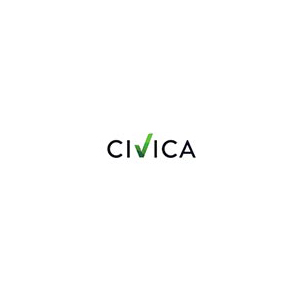
Senate Finance Committee Hearing Raises Issue of U.S. Reliance on Foreign Drug Supplies, Civica Testifies
June 5, 2020
The Senate Finance Committee held a hearing this week on the FDA’s oversight of foreign drug manufacturers, which also highlighted increased concerns about the U.S.’s dependence on foreign-made medicines.
The committee heard testimony from FDA officials and generic drug manufacturers, including Salt Lake-based Civica. Founded in 2018, Civica, a non-profit social welfare organization, is committed to making quality generic medicines available and affordable. Today, more than 50 health systems have joined Civica – representing approximately 1,200 hospitals and over 30 percent of all U.S. hospital beds. In just over a year, the company has delivered over 20 sterile injectable medications, with approximately 20 more generic medicines in the pipeline for 2020. Approximately 100 new generics are expected by 2023.
In his testimony, Civica President and CEO, Martin VanTrieste, told the committee that “no single policy caused the exodus of pharmaceutical companies from the U.S., and it will take a multi-faceted approach – and a sustained commitment – to further diversify the supply chain and rebuild our domestic manufacturing capacity…”
VanTrieste also outlined specific policy tools that could help rebuild domestic capacity, guard against supply disruptions, and keep the cost of medications in check. These include:
- Creating an essential medicines list to set priorities for investments, policy and regulatory reviews
- Improving transparency in sourcing, pricing and drug quality
- Utilizing incentives to encourage U.S. investment
- Committing government programs to prioritize purchase
of U.S.-made goods
- Enhancing the Strategic National Stockpile
- Directly supporting U.S. manufacturing, and
- Focusing on advanced manufacturing
The COVID-19 crisis has exposed potential weaknesses in our drug supply chain, leading to an outcry by the Administration and lawmakers on both sides of the aisle to expedite more U.S.-based production of essential medicines, drug ingredients, and medical supplies.
In his testimony, Civica President and CEO, Martin VanTrieste, told the committee that “no single policy caused the exodus of pharmaceutical companies from the U.S., and it will take a multi-faceted approach – and a sustained commitment – to further diversify the supply chain and rebuild our domestic manufacturing capacity…”
Civica is part of a new U.S. Government-funded partnership to produce essential generic medicines and their ingredients at one location in the United States. The immediate priority for the partnership will be COVID-19 response. Civica’s role will be to manufacture the finished dosage forms of essential medications, including vials and syringes, with its existing network of Civica manufacturing partners. Civica will also build a facility capable of producing finished sterile injectable medicines for U.S. patients on an ongoing basis and to meet the needs of the national stockpile.
Last summer, Senate Finance Committee Chairman, Chuck Grassley (R-IA), sent a letter to Department of Health and Human Services (HHS) Secretary Alex Azar and Food and Drug Administration (FDA) Acting Commissioner Norman Sharpless urging that unannounced inspections of foreign drug manufacturing facilities be reinstated. In the letter, Grassley writes that “unbeknownst to many consumers… 80 percent of Active Pharmaceutical Ingredients (APIs) are produced abroad, the majority in China and India; however, the FDA only inspected one in five registered human drug manufacturing facilities abroad last year.” The exact dependence, however, remains unknown since no reliable API registry exists
GAO’s health care director, Mary Denigan-Macauley, also testified and specifically addressed shortcomings in FDA’s inspections of foreign drug manufacturers. The GAO has been critical of FDA’s oversight activities, noting that the agency still conducts relatively few foreign inspections relative to the volume of production, and that most foreign inspections are preannounced, giving manufacturers time to prepare for inspections. In March, the FDA suspended most foreign inspections as a result of the COVID-19 pandemic.